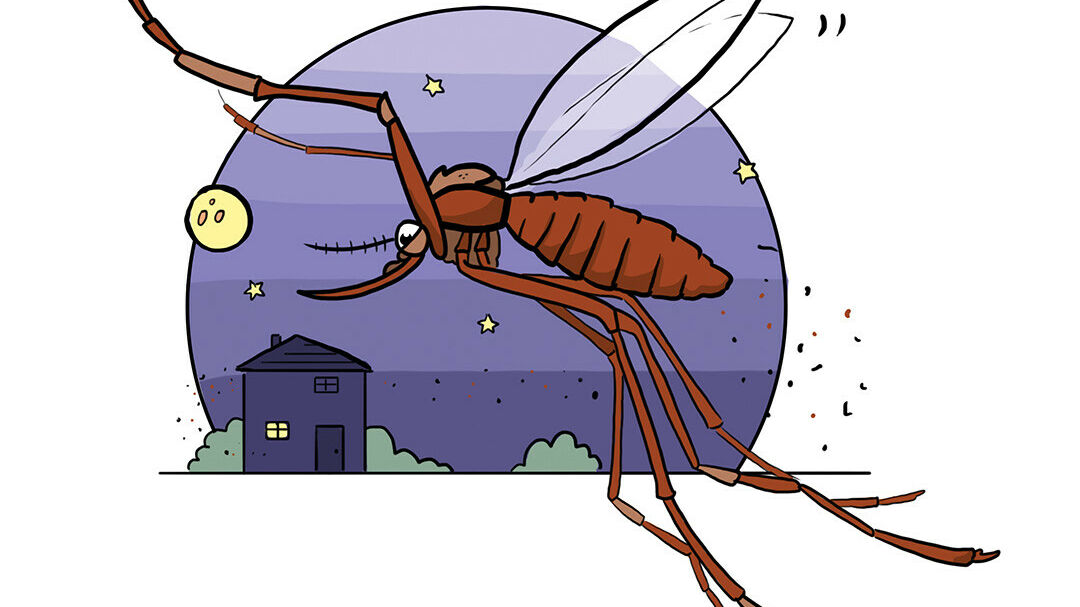Wisconsin
Wisconsin State Fair 2023 in full swing
/cloudfront-us-east-1.images.arcpublishing.com/gray/ORNJDVJCYFG3BERYEHNJZ4M7QQ.png)
WEST ALLIS, Wis. (WMTV) – The 172nd Wisconsin State Fair opened on Thursday and, once again, this year will be full of rides, food and drink items, and animals through August 13.
The 2022 Wisconsin State Fair greeted 1,003,450 guests during the best 11 days of summer. The State Fair says it is excited to celebrate 172 years of tradition this year.
A State Fair staple, the Original Cream Puffs, are back and baked fresh at the fairgrounds. Tess Kerksen, Director of Public Relations of the Wisconsin State Fair, said nearly 400,000 Cream Puffs are sold over the 11 day fair.
“Absolutely don’t know how we do it. Don’t know how the bakers crank out all of those Cream Puffs but they certainly do so everyone can have their chance at a Cream Puff,” Kerksen said.
There are 105 brand new food items gracing the State Fair this year too.
“We have things like the dill pickle corn dog where it’s a dill pickle cored out with a hot dog in it covered in batter and of course deep fried,” Kerksen said. “We have other things like the atomic slush which is the world’s hottest frozen slush. Absolutely crazy. It has Carolina Reaper pepper powder in it and I can’t believe people are trying it but they certainly are.”
These are hours of operation for the 2023 Wisconsin State Fair:
- Sunday – Wednesday: 10am – 10pm
- Thursday – Saturday: 10am – midnight
Plan your day at the State Fair ahead of time here.
Click here to download the NBC15 News app or our NBC15 First Alert weather app.
Copyright 2023 WMTV. All rights reserved.

Wisconsin
COLUMN: What’s the Buzz? It’s Summer in Wisconsin

My wife and I were sitting in our living room, engaging in the Mobius strip of Netflix scrolling. We had survived the eight months of winter and relished the 23 hours of spring. The weather alert on our computer advised that the night was to be clear with a full moon.
“Hey, Jane. Let’s take a romantic walk. It’s supposed to be lovely tonight.”
“Let me just grab my coat.”
“Jane, it’s June.”
“Right. I’ll grab a scarf, too.”
We stepped outside, and to our surprise, it was completely overcast. I guess the weather forecast was wrong. But then I heard the ominous, spine-tingling humming.
“Jane, run for it!” But I was too late. The cloud of mosquitoes had already latched onto her and was airlifting her back to Half Moon Lake.
As anyone who lives here knows, we have an overabundance of blood-sucking vermin in Wisconsin. In fact, Eau Claire would be an ideal place for a medieval barber to practice medicine. I imagine it would go something like this:
Barber: What seems to be the problem?
Peasant: It’s my son. He’s got a touch of the Black Death.
Barber: Well, that’s going around. What your son needs is a good blood letting.
Peasant: That makes sense. Should I bring him to your office?
Barber: No need. Just have him take a hike at Lowes Creek Park near sunset. Here’s your bill. You owe me two chickens and a dead cat.
Peasant: Dead cat? Why do you need a dead cat?
Barber: I can’t tell you. I’m not allowed to reveal the secrets of the pharmaceutical industry.
It makes me wonder why I still live in Eau Claire. Recently, my wife and I flew out to California to visit our friends, Lew and Mary Ann. They didn’t have any mosquitoes. They had clouds of Monarch butterflies. Butterflies! I was wandering under their lemon trees while they and my wife lounged on the deck, unbothered by any biting insects. As I joined them on their deck, I started to strip down.
Lew: Um, what are you doing?
Me: I walked through some tall grass, so you know the routine.
Lew: No. No, I do not.
Jane: I have to look for bullseyes.
Lew: Bullseyes on his back?
Jane: Yes.
Lew: Little paranoid, aren’t you?
Me: Not where ticks are concerned.
Lew: Oh, we don’t have ticks.
Me: You … don’t have ticks? So, no Lyme’s Disease?
Lew: Lyme’s disease? Is that something you get from drinking too many margaritas?
I found their ignorance of blood-borne pathogens wonderfully refreshing. I looked at all of the pluses for living in California: no winters, close to the Pacific Ocean, and fewer chances of dying from a lingering illness. I had to move to California!
Me: I want to be your new neighbor. How much is a house here?
Lew: Our house is worth $1.3 million.
Me: $1.3 million? But, but, your house is SMALLER than our house in Wisconsin!
Lew: That’s the going rate.
We flew back to Wisconsin with a greater appreciation for our hometown after all. Jane and I sat on the back patio of our house that was one-eighth the price of a house in California. A mosquito landed on my tricep and plunged his proboscis into my soft tissue. I smiled at her benevolently and said, “God bless you, my little housing market deflator.” SMACK. “Rest in peace.”
Wisconsin
Wisconsin goats eat invasive plants in Calumet woods

CALUMET, Mich. (WLUC) – Goats grazed in Calumet’s Swedetown Recreation Area forests on Saturday morning,
The Keweenaw Invasive Species Management Area (KISMA) works with the Houghton, Hancock, and the Keweenaw tri-county area to stop invasive species from growing. Families were invited to greet the goats from a Wisconsin farm. The goats are part of the Regenerative Ruminants service, which provides a group of goats that clear brush. People could also learn about the invasive glossy buckthorn. Researchers said the plant can take over a native forest habitat.
KISMA coordinator and Michigan Tech University researcher assistant professor Sigrid Resh said native species don’t eat the plant. She also calls the glossy buckthorn a “woody invasive” species, she also mentions how it displaces the native hardwood forests. Her team is in its second year of the research project, deciding whether goats can eat buckthorn. Resh hoped to find a different way to combat invasive plants instead of using chemicals like pesticides. She said even the plants people bring into their gardens impact the woods.
“Japanese barberry, that’s used as a landscaping species, can still be bought at places like Walmart,” Resh said. “Those are escaping your yard and coming into our forests and changing the habitat.”
She said people can help at home by replacing invasive plants with native ones.
Copyright 2024 WLUC. All rights reserved.
Wisconsin
Coalition aims to protect Wisconsin seniors from abuse, financial exploitation

WISCONSIN — Hundreds of thousands of dollars are headed to Wisconsin to help curtail issues tied to elder abuse, as the University of Wisconsin-Green Bay works with the Wisconsin Department of Justice and other agencies to strengthen the Elder Justice Coalition in Wisconsin.
“[We’re] working to protect older adults from financial exploitation and from abuse and neglect,” said Laura Nolan, the executive manager for business and government outreach at UW-Green Bay. “There’s a variety of programs that we are utilizing our resources for to really help strengthen what we have here in Wisconsin, bringing together the people who care about helping older adults — law enforcement, banking entities, our state resources — and really trying to tackle a problem that has a huge impact on our older adults.”
According to UW-Green Bay, data from the U.S. Census Bureau revealed nearly 26% of Wisconsin’s population will be 60 and older by 2030, and scammers aim to pounce.
“The scammers are really good,” Nolan said. “We shouldn’t feel embarrassed if we fell for a scam. The most important thing to do is to actually get that help right away: Report it to the police, talk to your financial institution [and] the FBI has a hotline where you can report it and get extra help — so there are a lot of resources and help out there.
Watch the full interview above.
-

 News1 week ago
News1 week agoIsrael used a U.S.-made bomb in a deadly U.N. school strike in Gaza
-

 World1 week ago
World1 week agoFrance to provide Ukraine with its Mirage combat aircraft
-

 World1 week ago
World1 week agoWorld leaders, veterans mark D-Day’s 80th anniversary in France
-

 World1 week ago
World1 week agoRussia-Ukraine war: List of key events, day 833
-

 Movie Reviews1 week ago
Movie Reviews1 week agoInsane Like Me? – Review | Vampire Horror Movie | Heaven of Horror
-

 News1 week ago
News1 week agoNonprofit CFO Accused of 'Simply Astonishing' Fraud
-

 Politics1 week ago
Politics1 week agoGeorge Clooney called White House to complain about Biden’s criticism of ICC and defend wife’s work: report
-

 Politics1 week ago
Politics1 week agoNewson, Dem leaders try to negotiate Prop 47 reform off California ballots, as GOP wants to let voters decide


















